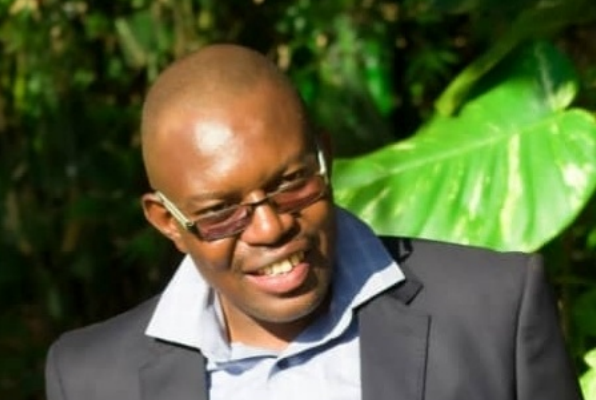Rethinking United Nations Discourse on Personhood: Interview with Dr Clarton Fambisai Mangadza

My name is Dr Clarton Fambisai Mangadza. I am a post-doctoral research fellow at the University of Fort Hare, South Africa. My research investigates the rich possibilities of working out novel interpretations of the notion of personhood by exploring the concept of mind from its African and Western perspectives.
What project have you worked on during your fellowship period?
The LUCAS/LAHRI virtual visiting Research Fellowships 2022, focused on “African Knowledges for Global Challenges”, linked to the idea of Sustainable Development Goals (SDG’s). Therefore, for my project titled “Rethinking existing underlying United Nations (UN) modes of discourse: An African philosophical perspective”, I engaged African philosophy of mind to understand how UN discourse on global challenges is approached, addressed, and articulated.
What are the findings of your project so far?
Tshilidzi Marwala at the United Nations University in Japan once said: “Advancing sustainable development goals is an absolute necessity.” My findings so far show that UN discourse of so-called[1] “global challenges”: e.g. human rights, gender equality, democracy, and so on; have failed to champion a case for African notions of personhood.
I approached this project from a non-reductive physicalist (NRP) perspective[2]. Three important things: one, there is apathetic behaviour towards African notions of personhood. Whilst I investigated African notions, I concluded that to an extent, current UN discourse presupposes mainly Western notions of personhood. For me, the underlying assumptions that anchor Western notions of personhood are, individualistic (Descartes’ influence) and psychological, that is linking personhood very closely to certain kinds of mental states (arising from Locke’s influence). My recommendations focus on an African-centred alternative, namely Kwasi Wiredu’s (1987) interpreted Akan concept of mind: a non-substance view that gives a unified account of personhood. The African conception highlights embeddedness in a community network, and derivatively on individuals in virtue of their obligations to the community network.
How does the project speak to the overall theme of “African knowledges for global challenges”?
African notions of personhood as alternatives ought to be championed with a transformative agenda in mind. UN discourse on “global challenges”, such as human rights, gender equality, democracy, and so on, are underexplored, neglected, epistemically ostracized, or maybe opportunely ignored. For instance, UN discourse treats gender equality[3] as a human right. The United Nations Children’s Fund (UNICEF), says: “gender equality is a matter of human rights and is considered a precondition for, and indicator of, sustainable people-centred development” (November 2017 – Gender Equality: Glossary of terms and concepts). This articulation by UNICEF gives perspective to this project. UN debates on gender equality have not been sufficiently inclusive in its articulations of these global challenges. It remains unfathomable why Western atomistic modes of discourse about personhood -- in which a person is an individual rational mind (overly individualistic and psychological) -- continue to be dominant in UN discourses, depriving other notions of an opportunity to contribute. My view is that it is imperative for all humanity to converge in making a case for the rethinking of existing underlying modes of discourse in UN debates with the hope of accommodating other non-Western perspectives, specifically, African notions of personhood.
In addition, the project adds to the challenging drive for decolonisation as was masterfully presented by Prof. Ndlovu-Gatsheni during the LUCAS Annual lecture 2022, titled “Politics of decolonizing knowledge in African studies”. My conclusions do not claim to be exhaustive of practical concerns, nor do I intend to offer definitive answers to practical concerns that arise, rather, I limit the exploratory reflections to mirror how African notions of personhood have been, in my view, isolated from global initiatives that are supposedly aimed to achieve UNESCO’s Sustainable Development Goals (SDG)’s.
Is there anything you would like to add?
My gratitude to Prof Adriaan van Klinken for the support at various levels. To my mentor, Prof. Heather Logue I am very grateful for the continued support. I also thank the department of Philosophy at the University of Fort Hare, in particular my Host Prof. Abraham Olivier for also accepting and recommending that I take up the short term virtual fellowship. Lastly, I thank Prof. Robert Williams who directed my application to Prof Heather Logue; to Erin Pickles, LAHRI institute Manager; the HR people, thank you; and also not to forget the IT people many other individuals at Leeds University who responded to my call for help on practical concerns of my project, I thank you all.
Notes
[1] I am using this to highlight that the designation global challenges is debatable: issues about democracy, human rights generally do not bring consensus; in many communities the perspectives and contexts of understanding these issues vary.
[2] NRP (non-reductive physicalism) is an ontological view in contemporary philosophy of mind which is also called ‘property dualism’ or ‘token-identity theory’. According to Tim Crane (1999) it “identifies mental and physical particulars or tokens and it is invariably supplemented by the claim that mental properties supervene on physical properties”. NRP is the acceptable variety of physicalism and not its well-known variety, RP (reductive physicalism) which holds that “mental states are identical with physical states […]” (Mangadza 2020 unpublished PhD dissertation-University of Pretoria).
[3] Gender equality is the equal valuing by society of similarities and the differences of men and women, and the roles they play (UNICEF glossary of terms-Nov. 2017).
